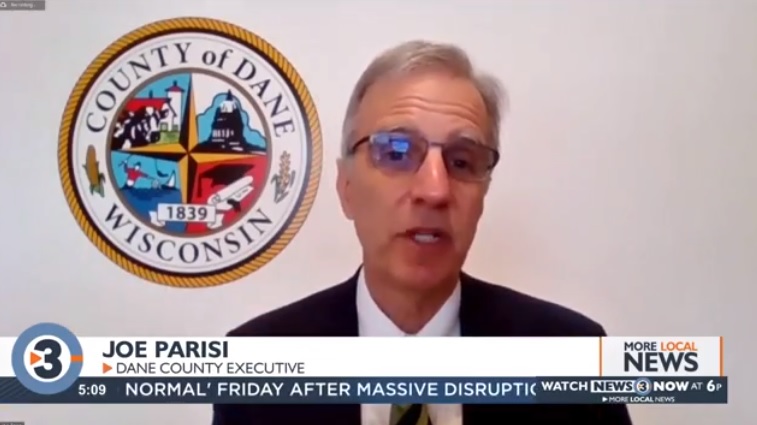Posted on January 2, 2023
Dane County’s ongoing watershed improvement program “Suck the Muck” pulled an estimated 25,000 pounds of sediment from area creeks and streams as part of an effort to improve water quality and reduce the risk of future floods.
The purpose of the county’s efforts is two-fold: dredge phosphorous-filled sediment from area waterways to prevent algal blooms and remove built-up silt to allow creeks and streams that connect the county’s lakes to handle increased water flow.
Work on the sediment dredging efforts — dubbed “Suck the Muck” — 2022 focused on several miles of the Six Mile Creek in the town of Westport located between Waunakee and Middleton throughout 2022. During the course of their work, crews removed roughly 60,000 pounds of phosphorus — the chemical that causes blue-green algal blooms in area lakes — from area creekbeds.
RELATED: ‘Suck the Muck’ project gears up for next phase of waterway dredging
While the project started out as a creative way to prevent harmful algal blooms from growing in Madison’s lakes, Dane County Executive Joe Parisi said impacts of climate change have made flood prevention an equally important part of the county’s watershed improvement mission.
“Sometimes we tend to think about climate change, we think of the forest fires in California; we think of hurricanes,” Parisi said. “But we have real impacts right here, and those impacts are going to continue to grow as the planet warms.”
In the years to come, Parisi said “Suck the Muck” efforts will continue in waterways that have been identified as having high amounts of phosphorus.
Meanwhile, flood prevention efforts, Parisi said, will focus on downstream waterways within the Yahara watershed. Lake Kegonsa and waterways in the Stoughton area will be targeted next to ensure they’re able to take on increased amounts of water before crews increase the water load upstream.
“We don’t want to open the channels up between Lake Mendota and Monona and have this rush of water come through and have the channels beneath it not be opened yet because that could cause more flooding downstream in Monona, Waubesa, etc.,” Parisi said.
For the Record: Examining the health and future of Wisconsin’s waterways
“Suck the Muck” is just one of the strategies county leaders have come up with to make the area lakes cleaner and safer for community use. Earlier this year, workers installed a filtration system at the Warner Park beach to keep algae blooms from forming in the area.
Since its introduction in 2017, “Suck the Muck” has removed nearly 60,000 tons of sludge containing an estimated 180,000 pounds of phosphorous.






